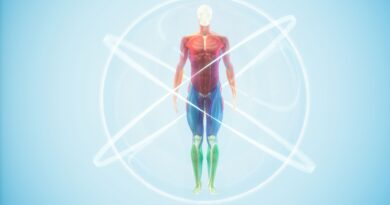The Healing Power Of Fasting-A Therapeutic Approach
Fasting has been used for centuries as a therapeutic approach to heal the body and mind. However, in recent years, it has become more popular as a way to improve health and overall wellbeing. In this blog post, we will explore the healing power of fasting and how it can be used as a therapeutic approach. We will look at the health benefits of fasting and provide tips for incorporating it into your life. By the end of this post, you should have a better understanding of how to use fasting as a powerful tool to improve your health and wellbeing.
Read More: Fitness Coach
What Is Fasting?
There’s a lot of confusion surrounding fasting and what it is. So, in this blog post, we’re going to break down fasting for those who are unfamiliar with it and help them understand the benefits of fasting in terms of health and well-being.
Fasting is the practice of abstaining from food or drink for a designated period of time. There are different types of fasts that can be done for different reasons, such as therapeutic fasting or weight loss fasts. However, the most common type of fast is the Ramadan fast. During Ramadan, Muslims abstain from eating or drinking from sunrise to sunset. This period is considered one of the most important days in Islam because it commemorates the first revelation given to Prophet Muhammad (PBUH).
There are many benefits to fasting therapeutically, including reducing inflammation and improving blood sugar control. Fasting can also help improve your mental health by reducing stress levels and boosting your mood. Additionally, fasting has been shown to reduce symptoms such as anxiety and depression. In fact, some studies have even shown that intermittent fasting can be more effective than traditional antidepressants at treating depression!
Beyond just treating symptoms though, fasting can also help you maintain your health overall by improving your diet and increasing your intake of fruits and vegetables. By cutting out unhealthy foods and replacing them with healthier options, you’re likely to see improvements not only in your physical health but also in your mental health and well-being too!
To reap all these benefits without any negative side effects, make sure that you establish an effective fast routine & set goals along the way! And finally – don’t forget about physical activity (especially cardio), nutrition (including enough protein)and meditation during any kind of fast – they all play a role in helping you achieve success!
Understanding The Benefits Of Fasting For Health And Well-Being
Fasting is one of the oldest and most popular practices in the world. It has been used for spiritual reasons for millennia, and it has recently been shown to have a wide range of physical benefits as well. When performed correctly, fasting can help to improve physical health, mental well-being, and spiritual growth. In this section, we’ll explore some of the potential benefits of fasting and how you can maximize these benefits.
First and foremost, fasting is known to have a wide variety of physical benefits. For example, intermittent fasting has been shown to improve blood sugar control, reduce inflammation, and increase muscle mass. Additionally, fasts can help to cleanse your body and activate genetic repair pathways. This is great news for people who are looking to prevent or treat diseases such as cancer or heart disease.
Secondary benefits of fasting include improved mental health symptoms such as anxiety and depression. Fasting can also help you reduce cravings by resetting your brain’s hunger hormone signals. Additionally, fasting can boost your concentration and memory while improving sleep quality overall.
Last but not least – spiritual growth is one of the biggest benefits of fasting! By cleansing your body and mind during a fast, you’re giving yourself the opportunity to connect with your higher self more fully. This increased connection allows you to tap into deeper aspects of spirituality that may have been hidden before. Whether you’re looking for guidance during difficult times or simply seeking greater insight into yourself – fasting may be just what you need!
The Health Benefits Of Fasting
We all know the health benefits of eating healthy, but what about fasting? Fasting is one of the oldest and most respected methods for improving physical, mental and spiritual well being. It has been used for centuries to treat a variety of illnesses and diseases. In fact, fasting is often referred to as the miracle cure. Below, we will outline the different types of fasting and discuss some of the benefits that they offer.
There are two main types of fasting: intermittent fasting and extended fasting. Intermittent fasting is when you fast intermittently – that is, you break your fast between meals. Extended fasting is when you fast continuously – that is, you skip all meals altogether. Both types of fasting have their own set of benefits and risks that we will explore below.
When it comes to starting a fast, there are a few things to keep in mind. First, find an approach that works for you – there’s no one-size-fits-all approach to fasting! Second, be realistic about how long your fast will last – don’t try to go on a fast for more than two or three days without proper preparation or guidance. And finally, be prepared for possible side effects such as mood changes or cravings during your fast.
Once you’ve started your fast (or extendedfast), it’s important to maintain it by following a proper diet plan while also drinking plenty of water and exercising regularly. By following these guidelines, you can maximize the health benefits that come with intermittent or extended fasting!
Related Article: Fasting For Longevity-Latest Research And Finding
Tips For Incorporating Fasting In Your Life
There’s a lot of buzz around fasting these days – and for good reason. Fasting is a powerful tool that has the potential to heal both the body and the mind. In this section, we’ll explore some of the benefits of fasting and discuss how you can incorporate it into your life in a safe and healthy way.
First and foremost, fasting is known as one of the most effective forms of healing. By abstaining from food for a period of time, you allow your body to detoxify itself and restore balance. This process can help to improve overall health by restoring optimal function to organs such as the liver, kidneys, and brain. Furthermore, fasts have been shown to reduce inflammation levels in the body, which can lead to better overall health.
When incorporating fasting into your lifestyle, it’s important to keep in mind some key tips. First and foremost, make sure that you consult with a healthcare professional before beginning any type of fast – particularly if you are pregnant or have any medical conditions. Second, be aware that intermittent fasting (fasting on certain days but not others) is more effective than daily fasting (fasting every day). Third, make sure that you include plenty of fruits and vegetables in your diet while fasting – they are high in nutrients and vitamins that are essential for optimal health. Fourth, be mindful when breaking your fast – don’t overindulge on heavy foods or drinks after eating during Ramadan or Lent if you’re trying to follow a strict fast schedule! Fifth, be sure to drink plenty of water while fasting – dehydration can cause many negative side effects such as headaches and fatigue. Sixth, remember that there is no set limit on how often one should fast – simply listen to your body and go with what feels best for you!
To Wrap Up
In conclusion, fasting is a powerful therapeutic approach that has been used for centuries to heal the body and mind. When done correctly, fasting can have numerous health benefits, such as reducing inflammation, improving blood sugar control, and boosting mental health. Additionally, it can help to improve your spiritual life by allowing you to connect more deeply with your higher self. Finally, it is important to establish an effective fasting routine and set goals along the way in order to maximize the benefits of fasting.




